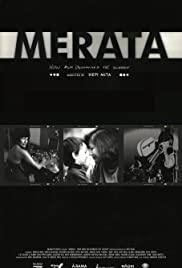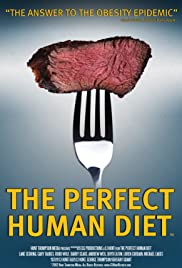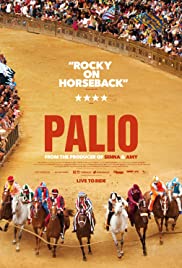
In the golden age of documentaries, who benefits? SUBJECT reveals the unintended consequences – good, bad, and complicated – of having your life shared on screen. Featuring the protagonists of acclaimed documentaries The Staircase, Hoop Dreams, The Wolfpack, Capturing the Friedmans, and The Square, as well as the filmmakers of Minding the Gap, Cameraperson, An Inconvenient Truth, and more.
You May Also Like

An in-depth look at how a diabetes drug reinvented weight loss culture and the way we treat obesity in America.

New Zealand film archivist Heperi Mita traces the cinematic legacy of his mother and trailblazing Maori filmmaker Merata Mita.

The extraordinary story of former Arizona Congresswoman Gabby Giffords: her relentless fight to recover following an assassination attempt in 2011, and her new life as one of the most effective activists in the battle against gun violence.

This documentary follows King Gnu frontman Daiki Tsuneta as he works with his musical collective millennium parade on their genre melding track “2992”.

The Kimberley in West Australia is home to various Aboriginal communities, where today most is in transition causing limbo and distress. Some have given up; others choose to fight both past and present demons to bring a change for the better to their people. In ‘Dreams from the Outback’ best friends Gabriel and Peter try to keep the ancient cultural traditions alive, with almost no support from the rest of their community. Felicity struggles to keep her family together after years of drinking and neglect and teenagers Billy and Jordan are brothers who meet for the first time. The boys spend the days getting to know each other, exploring the outback and their culture.

“The Perfect Human Diet” is an unprecedented global exploration to find a solution to our epidemic of overweight obesity and diet-related disease – the #1 killer in America. The film bypasses current dietary group-think by exploring modern dietary science, previous historical findings, ancestral native diets and the emerging field of human dietary evolution; revealing for the first time, the authentic human diet. Film audiences finally have the opportunity to see what our species really needs for optimal health and are introduced to a practical template based on these breakthrough scientific facts.

This documentary traces the career of renowned Spanish dolphin trainer José Luis Barbero and the events leading up to his shocking death in 2015.

We follow Otto Baxter, a 35-year-old man with Down Syndrome, over six years, as he writes and directs a foul-mouthed, autobiographical comedy-horror-musical set in Victorian London. Otto, who has always struggled to explain how he feels, uses his film The Puppet Asylum to explore his birth, adoption and his epic battle with ‘The Master’ – an evil magician hell-bent on controlling his life. During the filmmaking process Otto’s birth mother dies and he finds himself confronting life in the real world, including his future. Otto’s filmmaker friends Bruce Fletcher and Peter Beard help him to bring his vision to life, but also learn more about his unique perspective on the world and how they can play a role in his future.

Taking bribes and making deals is as essential as being a good rider in the Palio, the world’s oldest horse race. Giovanni, a young jockey, is up to the challenge when he faces his former mentor on the track. What ensues is a thrilling battle with the intoxicating drama that is at the center of Italian tradition.

Paul Merson walks through North Yorkshire, reflecting on life, career and faith. Carrying a 360-degree camera, he also describes his struggles with drink and gambling.

In 1971, director Melvin Van Peebles turned the figure of the black hero in US cinema upside down with Sweet Sweetback’s Baadasssss Song: the story of the making of a seminal movie that initiated the Blaxploitation movement, a short-lived but highly influential sub-genre in the years that followed.

The story of the abandoned production of ‘Day of the Champion’, a movie about Formula 1 which was set to film in 1966.